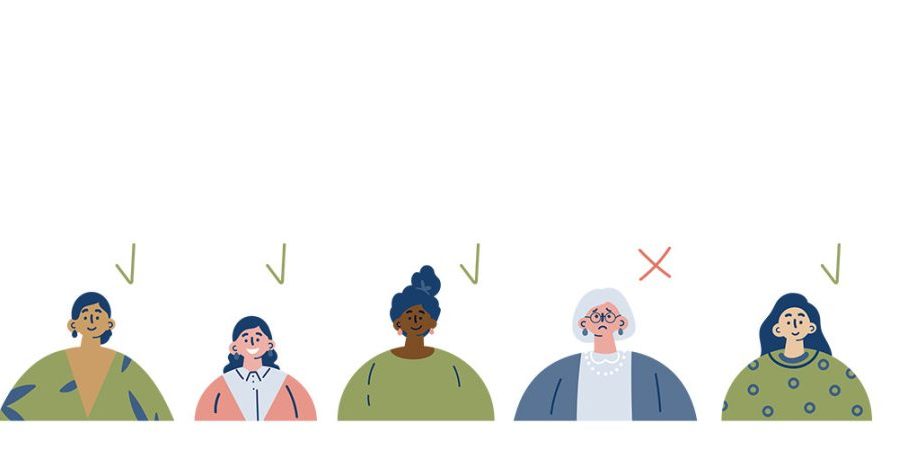What’s the matter with ageism?

By: Dr. Sheree T. Kwong See
In the weeks before she died, my mother made a plea to me. “Sher,” she said, “no one listens to us old people. If you can do anything to help us be heard, you do it.” At the time I was on secondment from my professorship at the University of Alberta and serving as the government-appointed Seniors Advocate. In my travels across the province, many seniors echoed my mother’s sentiment and recounted to me their experiences with ageism. I was not surprised. I had been researching and teaching about ageism at the University for over 20 years and I knew the theories; I knew the prevalence. It wasn’t until this exchange with my mother- one of those watershed moments – that I fully appreciated how much ageism matters – it really matters.
Gerontologist Robert Butler coined the term ageism in the 1960s to describe a form of bigotry he paralleled in importance to racism. Ageism refers to stereotyping and the ensuing prejudice and discrimination against people based on their age. Although ageism can be experienced by younger people, the impacts are different, and arguably more serious, when experienced in older age.
The age stereotypes that drive ageism in later life can be positive, such as believing older age brings kindness and wisdom; but are more commonly negative. These equate older age with declining physical and cognitive prowess (especially our memory), illness and dependency. Peppered with a grain of truth, age stereotypes are overgeneralizations and tend not to characterize any individual or the complex reality of aging. The aging of each of us is highly individual, influenced by biology and in good part, our circumstances, choices and lifestyles.
Therefore, and contrary to the all-encompassing stereotypes, some people will indeed grow in wisdom, but others never will. Some seniors will experience independence zapping illness and need institutional care, but over 90% of seniors 65+ live independently in their own homes. Because stereotyping drowns out individuality, substituting instead a hypothetical “old person,” it is no wonder in a poll of Canadian seniors, 41% reported being ignored or treated as if invisible, 38% believed people assumed they have nothing to contribute, and 27% believed people assumed they were incompetent.
Theories of ageism focus on society’s value for youth; fear of mortality, of which older people are a reminder; and age segregation that fuels stereotyping by decreasing opportunities to witness diversity amongst older people. Ageism also starts early. Children, as young as age three in my own research, modify their behavior with older people in alignment with common age stereotypes. While it is tempting to think the grass is greener elsewhere, ageism is a global issue. The World Health Organization (WHO) recently reported that one in two people are ageist against older people.
The scope of ageism is across-the-board. Plenty of research has demonstrated that ageism is operative in the workplace (e.g., in discriminatory selection practices) and health care (e.g., in age cut-offs for treatment and resource allocation). The impact of ageism is significant. Compelling research shows that ageism has detrimental effects on the health and well-being of older adults. The psychological mechanism for these effects is the internalization of self-fulfilling age stereotypes. Holding more negative age stereotypes, for example, has been found to be associated with a greater likelihood of future hospitalization, poorer hearing and memory, and early biomarkers for Alzheimer’s. Conversely, people with more positive self-perceptions of aging tend to practice more preventative health behaviors (e.g., eating a balanced diet and exercising) and live 7.5 years longer than those with more negative self-perceptions. If you doubt the transformative power of internalizing age stereotypes, when was the last time you heard a simple memory lapse attributed not to busyness or other external factor but to one’s age? If you were the one who claimed to be having a “senior moment,” the process of becoming a stereotypical “old person” has begun!
My mother was right – ageism influences how older people are valued and how we value ourselves. Ageism matters and we need to do something about it. The WHO’s strategies to combat ageism are to focus on instituting policies and laws; and educational and intergenerational interventions. Become involved and consider supporting the efforts of organizations in your community pursuing these strategies. As an individual you can increase awareness about ageism and its impacts. Accompanying this article is an infographic produced by Age Friendly Edmonton as part of its initiative to stop ageism. Look at it and think about the information in it; then pass on the infographic link by email/social media and start having conversations with others about ageism. Collectively and individually, we can make a difference and must stop ageism.
About the Author

Sheree T. Kwong See is a professor of psychology at the University of Alberta. She conducts research on the development and impact of age stereotyping and ageism in real-world contexts. Additionally, Sheree provides her expertise on Age Friendly Edmonton’s Ageism Hub. From 2016-2019 Sheree was appointed by the Government of Alberta to serve as the Alberta Seniors Advocate. This article was written on behalf of Age Friendly Edmonton as part of its initiative to stop ageism.



